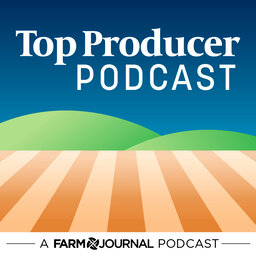Episode 16: Robert Barley
This week Paul Neiffer has a conversation with Robert Barley of Star Rock Farms LLC in Conestoga, Pennsylvania. Robert shares lessons he's learned from experience in running this operation, plus how he's approached succession planning, and working with employees, neighbors, vendors and professionals in a profitable manner.
 Top Producer Podcast
Top Producer Podcast


